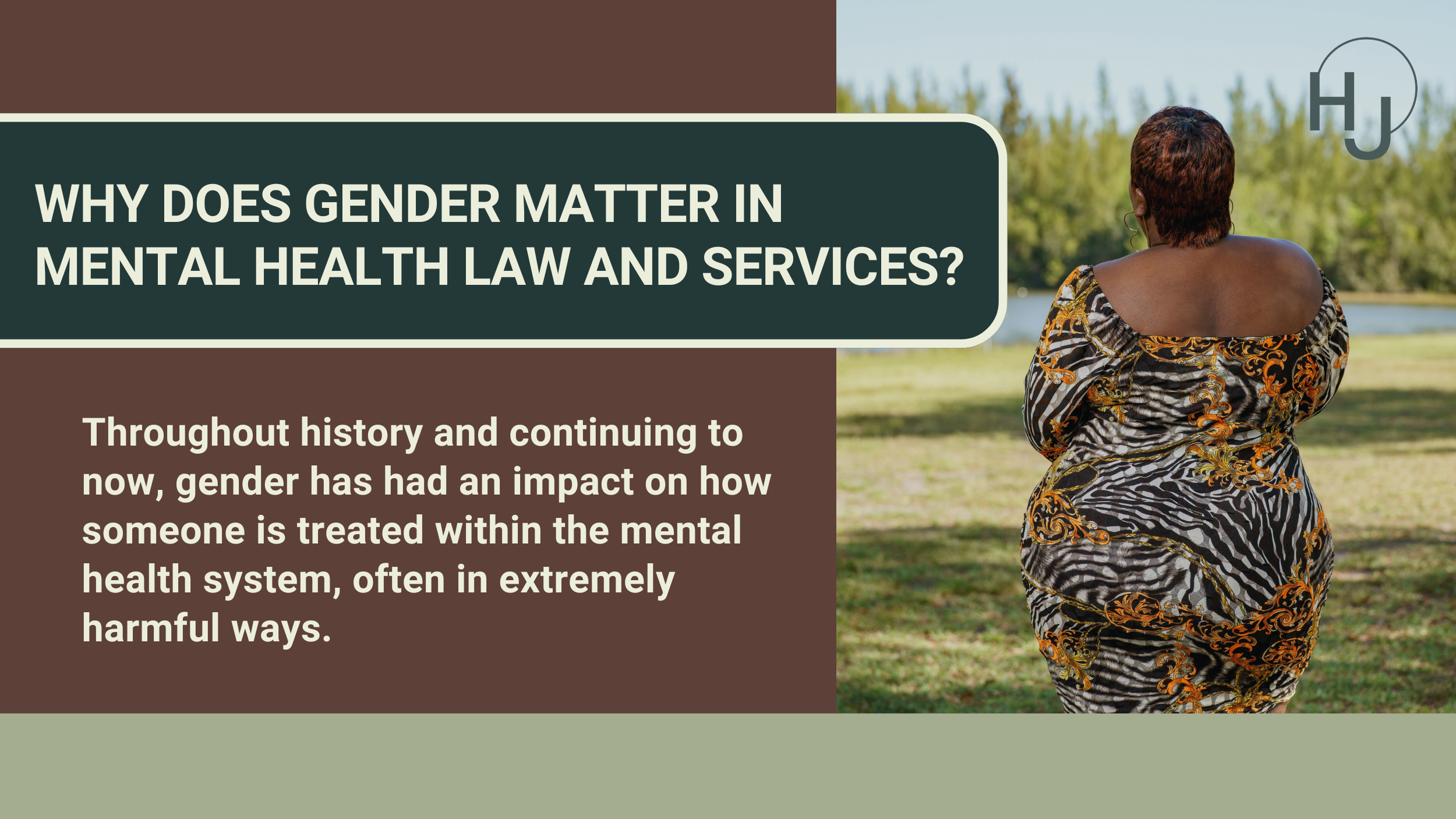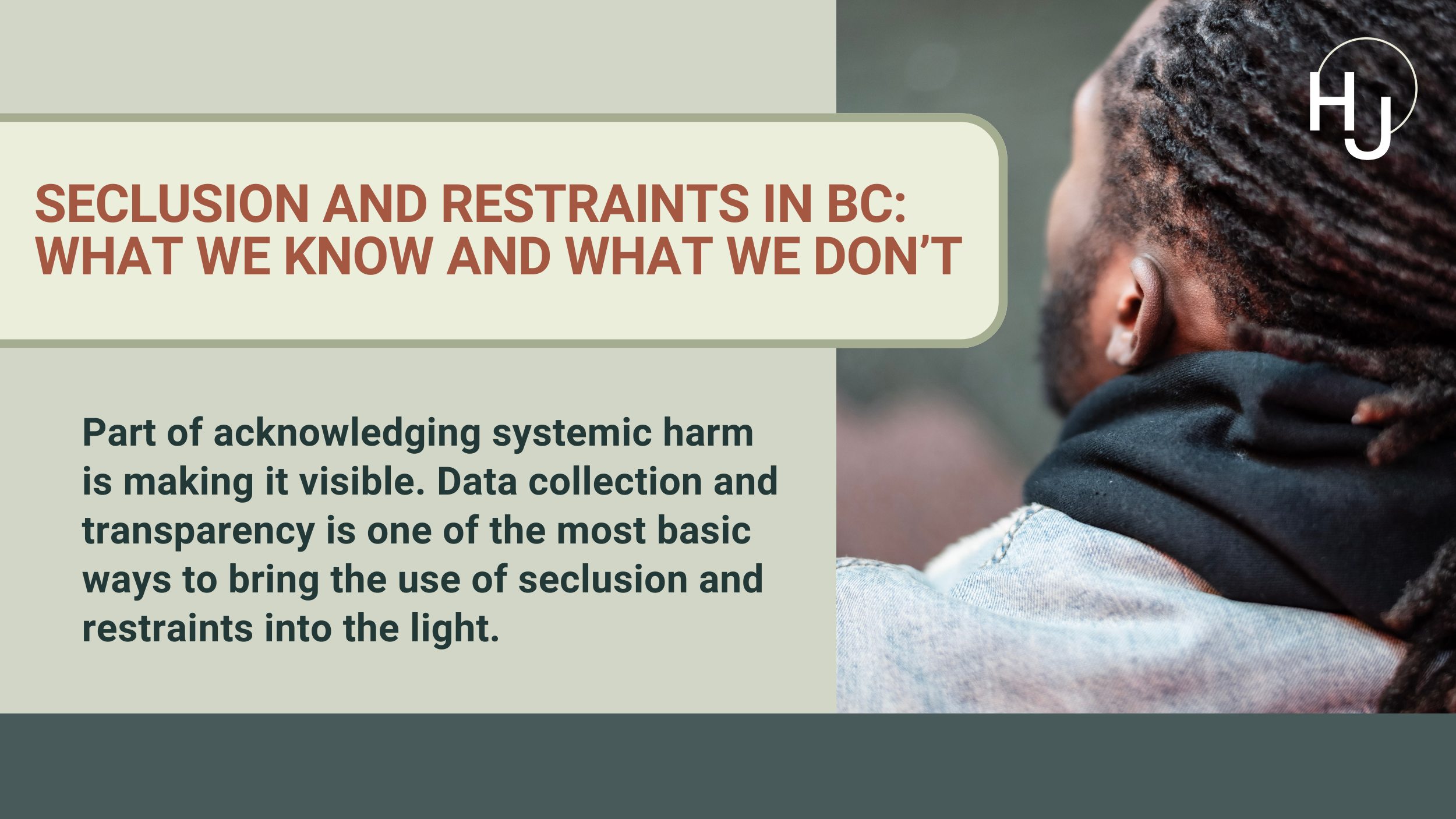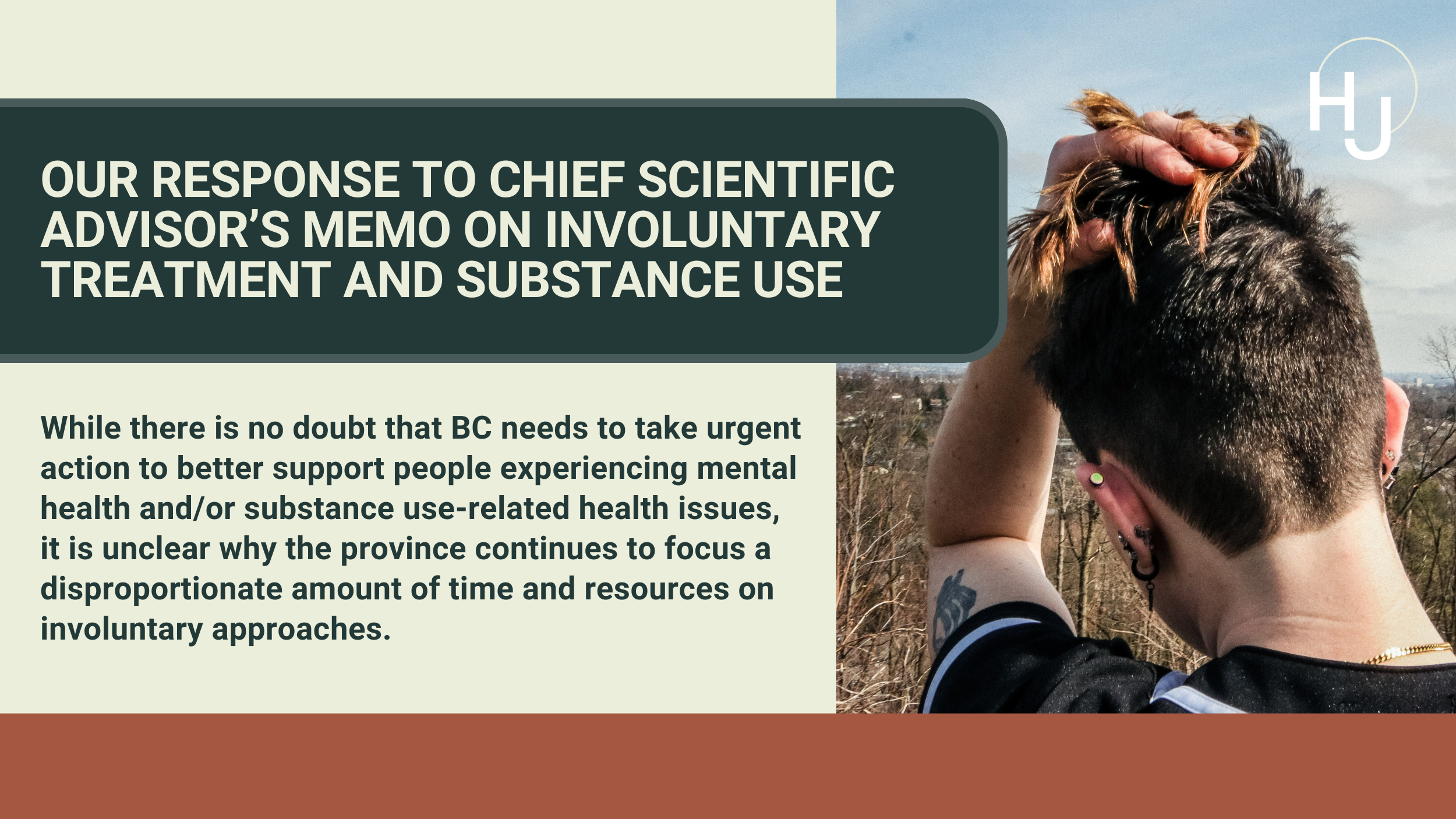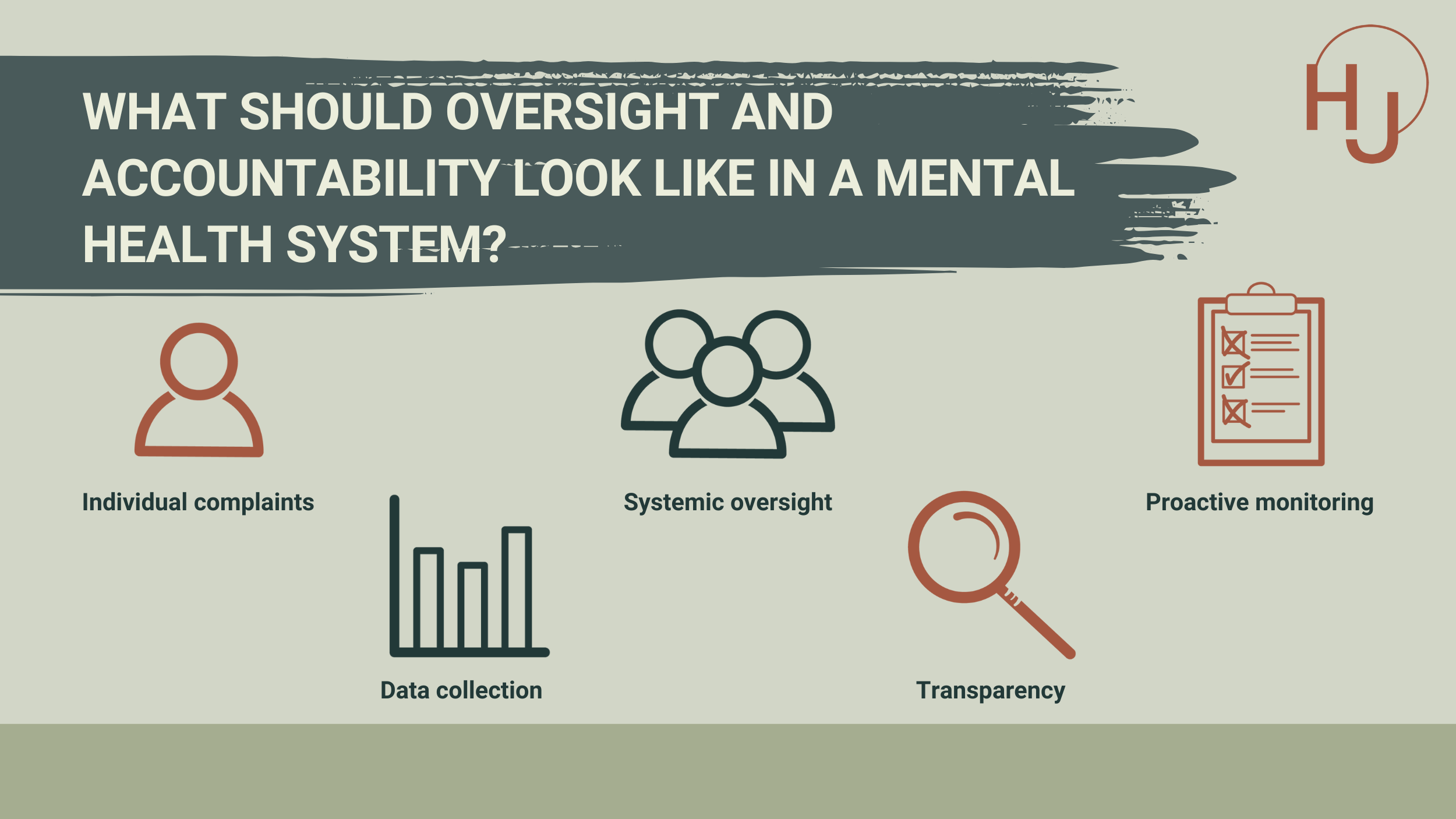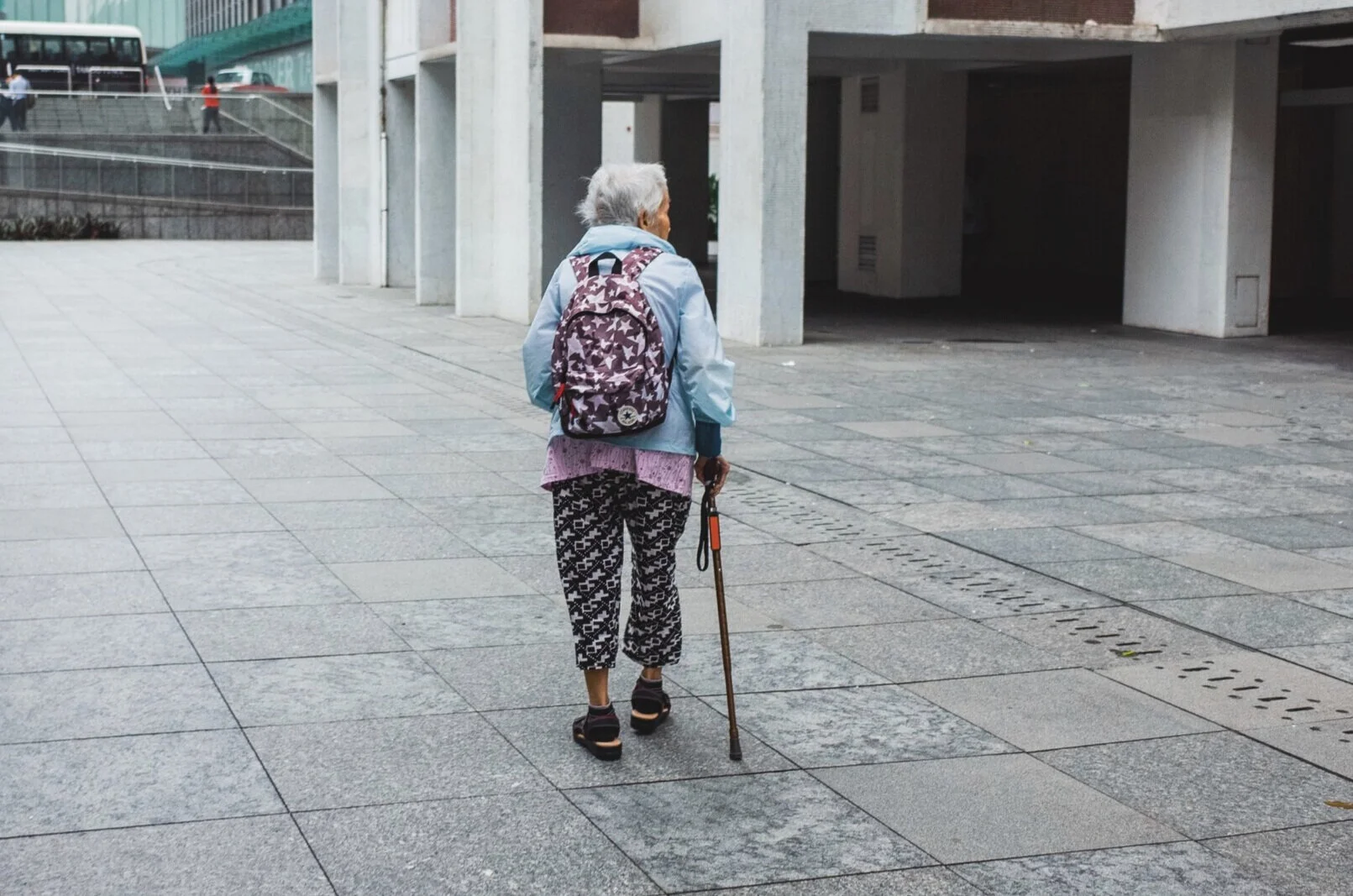
Oversight and Accountability
The power to detain someone under the Mental Health Act is one of the most serious legal powers exercised in Canada. When laws authorize serious powers over people, it’s important that there is independent oversight and safeguards in place.
Focus & Research
In this area of work, Health Justice is exploring how oversight and accountability could be built in to improve BC’s mental health and substance use health system. We are engaging with people with lived and living experience of involuntary treatment under the Mental Health Act and experts in the impact of the Mental Health Act on Indigenous people. We also include input from other stakeholders, including family members of people who have experienced involuntary treatment, health care and other service providers, and other community organizations.
Along with our engagement, Health Justice is conducting research on other Canadian and international jurisdictions to find effective examples of oversight and accountability.
We will be publishing results of this project as it unfolds. Follow our socials or sign up for our newsletter to know when the results of this project have been published.
Latest Work
What should oversight and accountability look like in a mental health system?
We published a blog post outlining the current context of why oversight and accountability is so important as discussion continues about expanding involuntary treatment in BC. With this, we included an infographic that focuses on 5 types of oversight and accountability that should be included in all mental health systems.
Why is oversight and accountability needed?
Oversight and accountability is needed for many reasons but one area of concern is that BC’s Mental Health Act states that every involuntary patient is “during detention, subject to the direction and discipline” of facility staff. This disciplinary power has been part of the Mental Health Act since the original law was passed in 1964. It allows patients to be solitarily confined in seclusion rooms, mechanically restrained with straps that tie them to their beds, or held with physical force by other people during their time in the hospital. While psychiatric institutions like Riverview have closed and some of the language and practices around psychiatric detention and treatment have changed since 1964, the authority to punish people in the name of treatment has persisted.
We have gotten access to data on seclusion and restraint use through a Freedom of Information (FOI) request submitted in 2023. Part of acknowledging systemic harm is making it visible. Data collection and transparency is one of the most basic ways to bring the use of seclusion and restraints into the light. It is a necessary first step towards evaluating a system with few limitations and safeguards. Learn more.
What does a Review Panel have oversight of?
Review Panels provide important oversight on whether an involuntary patient’s detention should continue under the BC Mental Health Act. But as an involuntary patient, there may be many questions or concerns that you can’t bring to a Review Panel because they don’t have any legal authority to consider it. This can leave involuntary patients with no where to turn.



